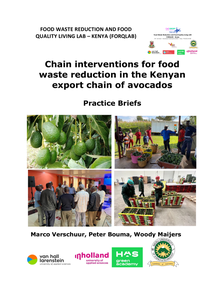Adaptive governance describes the purposeful collective actions to resist, adapt, or transform when faced with shocks. As governments are reluctant to intervene in informal settlements, community based organisations (CBOs) self-organize and take he lead. This study explores under what conditions CBOs in Mathare informal settlement, Nairobi initiate and sustain resilience activities during Covid-19. Study findings show that CBOs engage in multiple resilience activities, varying from maladaptive and unsustainable to adaptive, and transformative. Two conditions enable CBOs to initiate resilience activities: bonding within the community and coordination with other actors. To sustain these activities over 2.5 years of Covid-19, CBOs also require leadership, resources, organisational capacity, and network capacity. The same conditions appear to enable CBOs to engage in transformative activities. How-ever, CBOs cannot transform urban systems on their own. An additional condition, not met in Mathare, is that governments, NGOs, and donor agencies facilitate, support, and build community capacities. This is the peer reviewed version of the following article: Adaptive governance by community-based organisations: Community resilience initiatives during Covid‐19 in Mathare, Nairobi. which has been published in final form at doi/10.1002/sd.2682. This article may be used for non-commercial purposes in accordance with Wiley Terms and Conditions for Use of Self-Archived Versions
DOCUMENT

This booklet presents twenty-one impact stories of Ethiopian and Kenyan alumni of Dairy (Livestock) trainings in the Netherlands. The Dutch trainings consists of Master courses conducted by Van Hall Larenstein University of Applied Sciences (VHL) in Wageningen or Velp, short courses or diploma courses organised by Practical Trainings Centre (PTC+) in Oenkerk or Barneveld / Dairy Trainings Centre (DTC) in Oenkerk and short courses organised by Centre of Development Innovation – part of Wageningen University and Research Centre (WUR) in Wageningen. Most refresher course participants attended the Dutch trainings between 2010 and 2018. These alumni attended the Refresher Course entitled “Assessing the impact of Dutch knowledge institutions on performance of Netherlands alumni on dairy value chain governance in Kenya and Ethiopia” organised by Van Hall Larenstein University of Applied Sciences (VHL), Agrikom (alumni organisation) and Egerton University on 7-16 July 2019 in Nairobi and Nakuru, Kenya. Part of the refresher course was dedicated to a write shop about the impact of the Dutch training. It was written in collaboration with the professorship Climate Smart Dairy Value Chains.
DOCUMENT

Een internationale ervaring vergroot het perspectief op sociaal werk. Nelleke Nijhuis ervoer dit tijdens haar vele reizen naar Kenia. Dit heeft haar zo geïnspireerd, dat ze dagelijks haar buitenlandervaringen meeneemt in haar werk in Nederland. In dit artikel vertelt ze over haar werkwijze en benoemt de opgedane kennis en ervaringen die ze toepast in de door haar ontworpen methodiek ‘My Drive in Life’.
DOCUMENT

In today’s city environments, extreme weather conditions are a fact oflife. Amsterdam, Mumbai, Nairobi or Sydney… climate change issuesneed to be tackled all around the world.In the last couple of decades, Amsterdam has dealt with largeramounts of rainwater, severe heat stress and a decreased biodiversity.In order to strengthen urban resilience to climate change, blue-green(BG) roofs are increasingly being introduced. BG roofs placean additional water layer underneath the green layer. The idea is thatthese roofs reduce runoff after rainfall by retaining precipitation andmitigate heat stress, caused by increased evapotranspiration (the sumof evaporation from the land surface and transpiration from plants)and a higher albedo effect (the ability of surfaces to reflect sunlight).
MULTIFILE
The Kenyan supreme court recently struck down a government decision to ban the registration of an LGBTIQ+ community rights organisation, sparking new homophobic rhetoric in the country. Kenya is one of 32 African countries that criminalises homosexuality. Those who identify as part of the LGBTIQ+ community are often discriminated against, harassed and assaulted. Lise Woensdregt and Naomi van Stapele, who have researched queer experiences in Kenya for nine years, explain the impact of this ruling.
DOCUMENT

This booklet presents the practice briefs (popular papers) of master and bachelor theses and business assignments of students at three Dutch Universities of Applied Sciences: Van Hall Larenstein (VHL), InHolland and HAS Green Academy, and Meru University of Science and Technology in Kenya. All theses and business assignments were commissioned through the researchproject entitled “Food Waste Reduction and Food Quality Living Lab (FORQLAB)” in Kenya.
DOCUMENT

This magazine presents the highlights of the applied research project “Inclusive and climate-smart business models in Ethiopian and Kenyan dairy valuechains (CSDEK)”. The CSDEK applied research project was conducted in six case study areas, three in Ethiopia and three in Kenya. At the time of publishing this magazine, research was still ongoing in some of the study areas. The projectteam and researchers hope to contribute to creating awareness of climatesmartdairy practices and development of the dairy sector in Ethiopia and Kenya. In two of the study areas, collaboration between VHL and dairy stakeholders will continue, preferably through local networks in a Living Lab approach.
DOCUMENT

The authors consider the reality that endless economic growth on a finite planet is unsustainable, especially if society has exceeded ecological limits. The paper examines various aspects of society's endless growth predicament. It reviews the idea that there are 'limits to growth'; it then considers the 'endless growth mantra' within society. The paper then considers the 'decoupling' strategy and its merits, and argues that it is, at best, a partial solution to the problem. The key social problem of denial of our predicament is considered, along with the contribution of anthropocentric modernism as a worldview that aids and abets that denial. Finally, the paper outlines some potential solutions to our growth predicament. https://www.ecologicalcitizen.net/article.php?t=insanity-endless-growth https://www.linkedin.com/in/helenkopnina/
MULTIFILE
